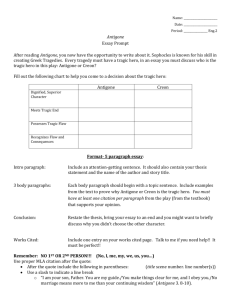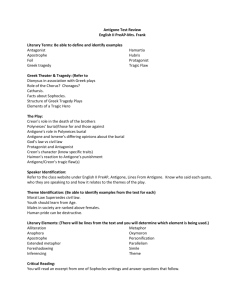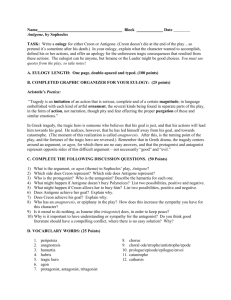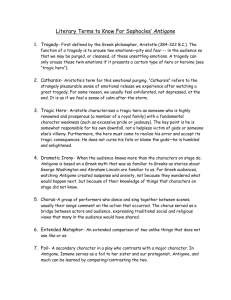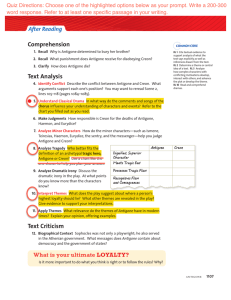Literary Analysis Prompt 1 In many stories there are characters that
advertisement
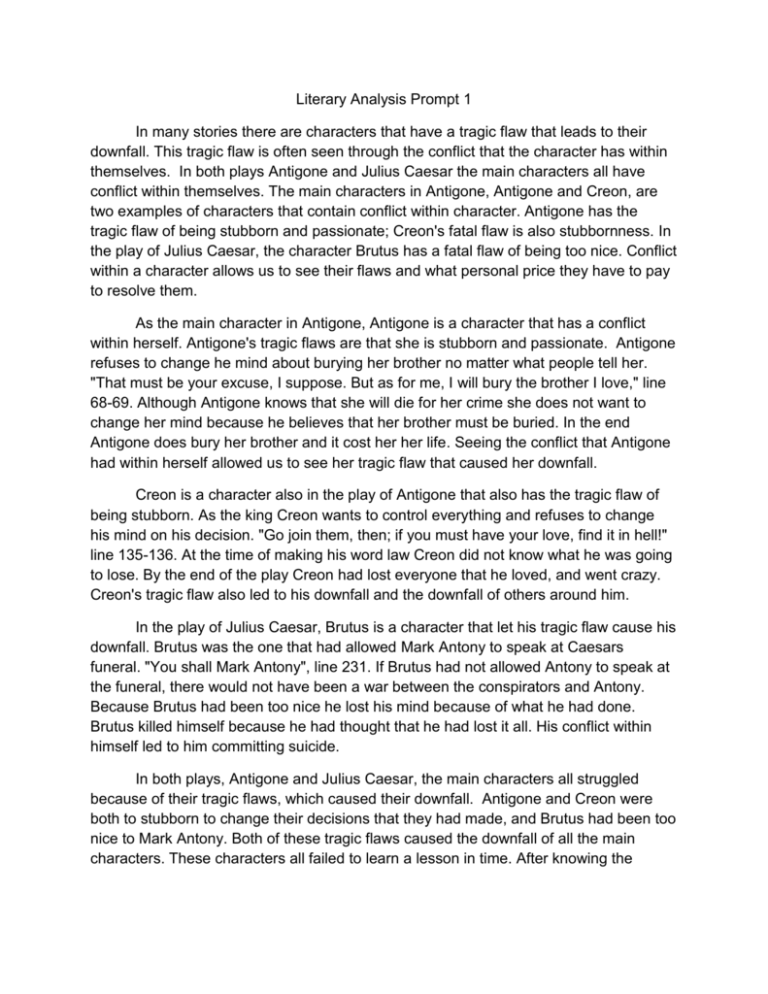
Literary Analysis Prompt 1 In many stories there are characters that have a tragic flaw that leads to their downfall. This tragic flaw is often seen through the conflict that the character has within themselves. In both plays Antigone and Julius Caesar the main characters all have conflict within themselves. The main characters in Antigone, Antigone and Creon, are two examples of characters that contain conflict within character. Antigone has the tragic flaw of being stubborn and passionate; Creon's fatal flaw is also stubbornness. In the play of Julius Caesar, the character Brutus has a fatal flaw of being too nice. Conflict within a character allows us to see their flaws and what personal price they have to pay to resolve them. As the main character in Antigone, Antigone is a character that has a conflict within herself. Antigone's tragic flaws are that she is stubborn and passionate. Antigone refuses to change he mind about burying her brother no matter what people tell her. "That must be your excuse, I suppose. But as for me, I will bury the brother I love," line 68-69. Although Antigone knows that she will die for her crime she does not want to change her mind because he believes that her brother must be buried. In the end Antigone does bury her brother and it cost her her life. Seeing the conflict that Antigone had within herself allowed us to see her tragic flaw that caused her downfall. Creon is a character also in the play of Antigone that also has the tragic flaw of being stubborn. As the king Creon wants to control everything and refuses to change his mind on his decision. "Go join them, then; if you must have your love, find it in hell!" line 135-136. At the time of making his word law Creon did not know what he was going to lose. By the end of the play Creon had lost everyone that he loved, and went crazy. Creon's tragic flaw also led to his downfall and the downfall of others around him. In the play of Julius Caesar, Brutus is a character that let his tragic flaw cause his downfall. Brutus was the one that had allowed Mark Antony to speak at Caesars funeral. "You shall Mark Antony", line 231. If Brutus had not allowed Antony to speak at the funeral, there would not have been a war between the conspirators and Antony. Because Brutus had been too nice he lost his mind because of what he had done. Brutus killed himself because he had thought that he had lost it all. His conflict within himself led to him committing suicide. In both plays, Antigone and Julius Caesar, the main characters all struggled because of their tragic flaws, which caused their downfall. Antigone and Creon were both to stubborn to change their decisions that they had made, and Brutus had been too nice to Mark Antony. Both of these tragic flaws caused the downfall of all the main characters. These characters all failed to learn a lesson in time. After knowing the conflict within the character we are able to understand them more, and how they could have prevented the price they had to pay.
